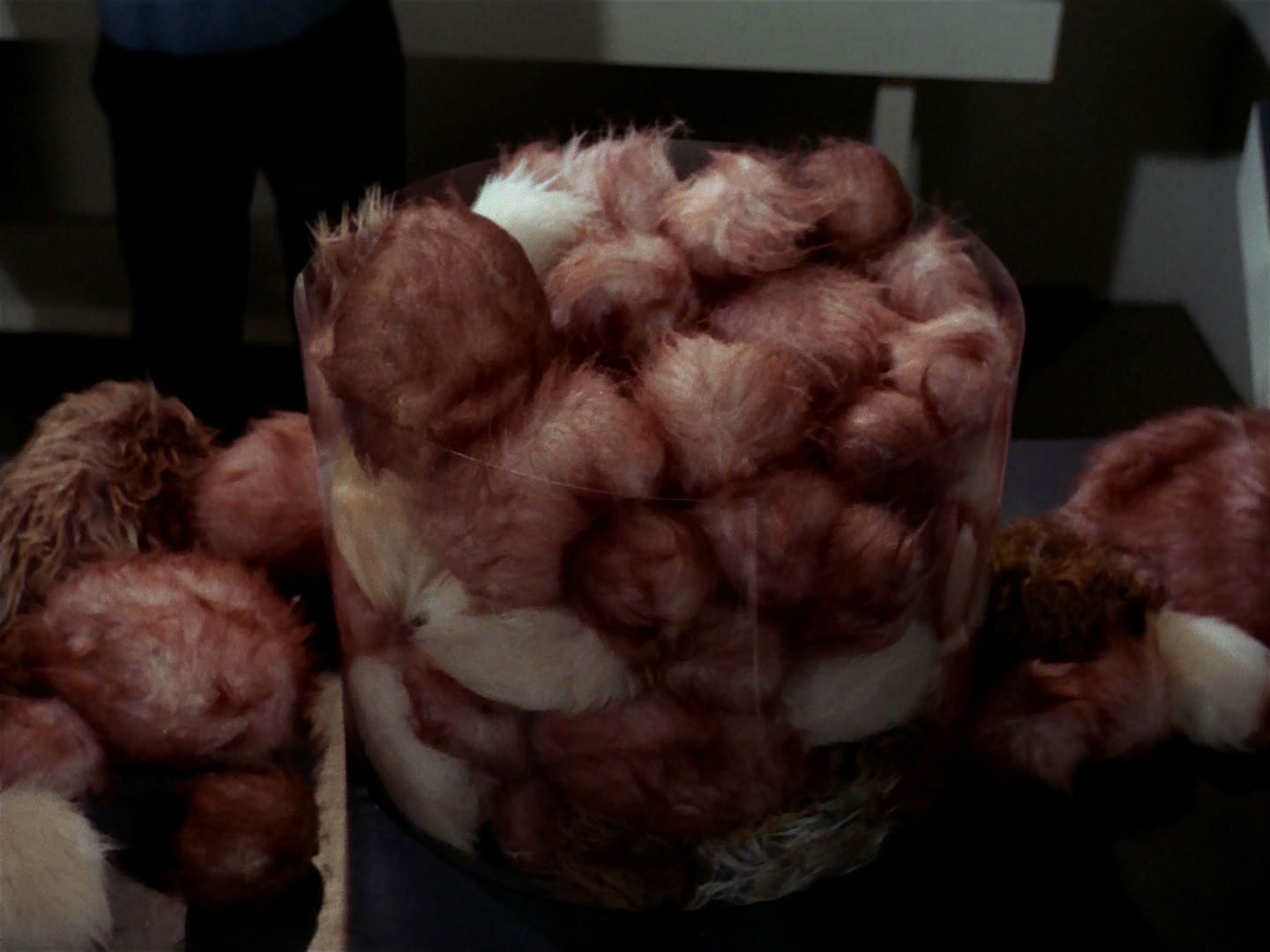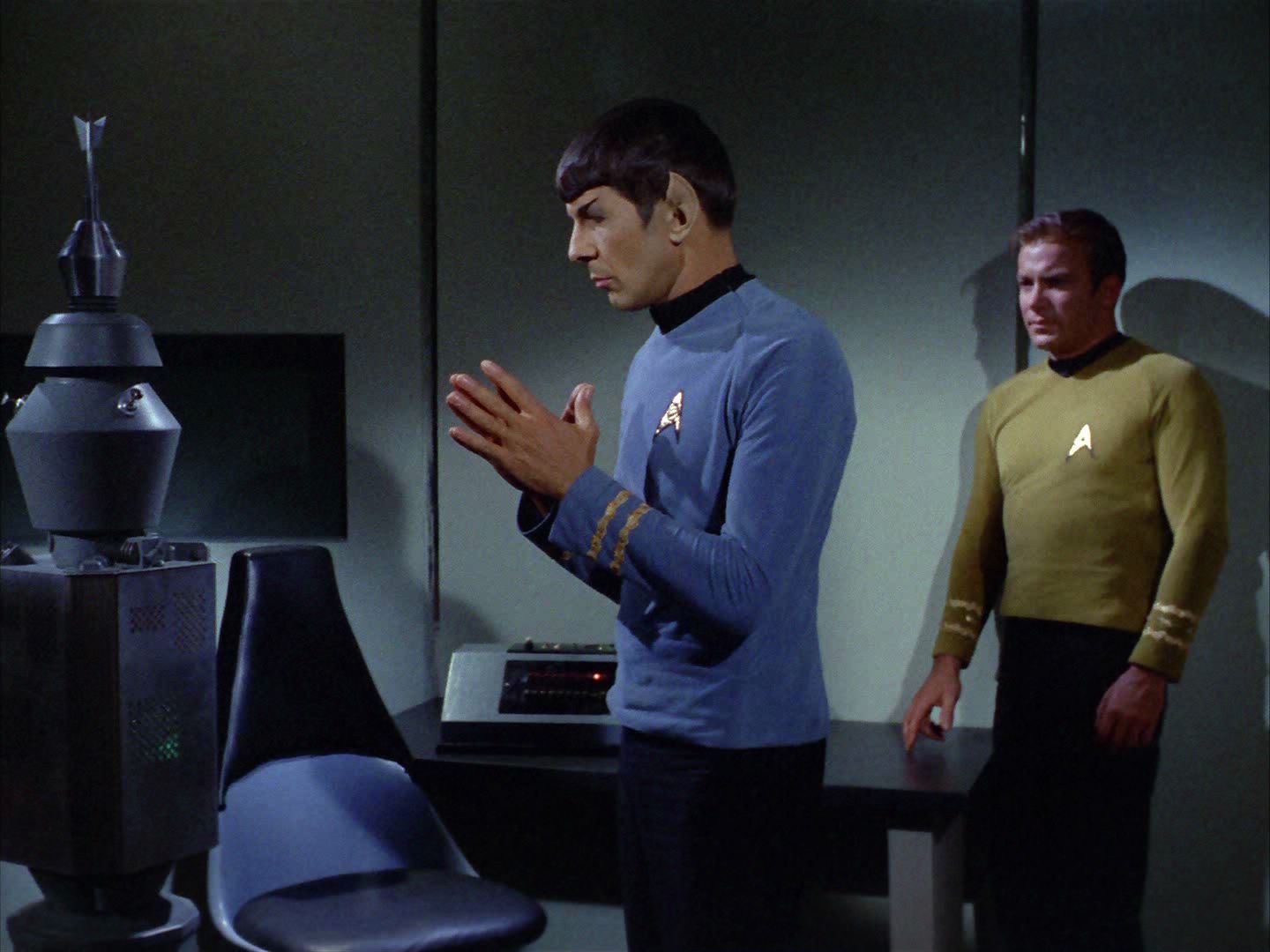 |
| "I'm sorry, I seem to have gotten lost and wound up on some other show." |
Well, the one good thing to say about it is that we can now be certain about who to blame for “The City on the Edge of Forever”.
Yikes this one is a mess. “A Private Little War” should have been interesting, being the second episode written by Don Ingalls. As the writer of “The Alternative Factor”, an episode I thought was positively delightful, giddily clever and a highlight of the first season, his follow-up effort for the more experimental second season should have been a fascinating watch, if not a minor classic. However, following a comprehensive rewrite from Gene Roddenberry, the story's Vietnam-inspired anti-war subtext became Vietnam-inspired pro-war text in one of the ugliest and clunkiest transformations I've ever seen an episode undertake. The end result is a catastrophically imperialist and bigoted and right up there with “The Apple” as one of the single worst things Star Trek ever produced, and this one doesn't even hold together as a cohesive bit of narrative structure. Ingalls was so offended by this he took his name off the script and used the pseudonym “Jud Crucis”, which is wordplay on the phrase “Jesus Crucified”. So that sounds promising.
I mean really, what more is there to say? Kirk discovers the Klingons feeding advanced weapons technology to a peaceful, idyllic group of childlike natives for...some reason, and his solution is to feed the other side weapons to preserve the “Balance of Power” and, just for good measure, explicitly stating this was the only way humanity survived the proxy wars between the United States and the Soviet Union during the Cold War. This is just about the exact same tack the show attempted back in “Friday's Child”, and I obviously owe D.C. Fontana an apology because it's now perfectly clear whose fault that bit of ethical bankruptcy was. We also once again have that interminable Book of Genesis Garden of Eden drivel which I'm at this point genuinely sick to death of seeing the show roll out over and over again. This time it's shown to be a tragedy, though a necessary one to introduce serpents into the garden (as opposed to “The Apple” which just considered this to be natural part of societal development), but this isn't adding any nuance to this stock, overused plot or providing a sufficiently fresh angle that would justify going over it yet again. Maybe Roddenberry should have just gone into Bible Studies instead of becoming a TV writer.
On top of that, any goodwill the episode stocked up thanks to the introduction of the really quite excellent Doctor M'Binga is quickly squandered by returning to the “Errand of Mercy” tactic of browning up the white actor portraying its Klingon adversary, something every Klingon episode in between had managed to avoid doing. Additionally, having Chekov, Scotty and Uhura freely contribute their opinions and analysis in the first bridge scene, and than having the script incapacitate Spock in order to explore Kirk and McCoy's relationship, are both brilliant moves except for the fact Roddenberry doesn't have Kirk listen to any of them and instead has him just go around winning arguments by shouting louder then the person he's debating against. And, since the show felt I hadn't quite suffered enough, it makes its primary antagonist an ambiguously brown shaman Lady Macbeth who has mastery of strange, vaguely-defined bush magic, lurks around the male cast in an obvious Judas Kiss pose and gets her comeuppance by being gang raped to death by the opposing faction because Gene Roddenberry apparently believes reactionary politics work like pinball machines and that he can somehow score an intolerance combo bonus multiplier.
Structurally, this episode is a disaster. It's perhaps tempting, though I would argue too easy, to blame this on Ingalls' original script, as no matter how much fun “The Alternative Factor” might have been no-one is going to call it an especially tight or coherent piece of work. But in that episode, the structural issues come primarily from the rushed and hectic production schedule the show was working under in its first season, and especially that week. Furthermore, those few problems it did have didn't detract from the experience because the conceit about conflicting parallel universes of matter and antimatter threatening to cause a narrative collapse through their interaction was genius, and the quirks wound up reinforcing that. “A Private Little War” doesn't have that kind of a setup to work with in the first place, and really it's pretty obvious the flow problems come from Roddenberry taking a hack saw to Ingalls' submission: Kirk's motivation and entire personality changes from scene to scene and he waffles back and forth about what his actual moral stance on the situation is, and not in a way that seems indicative of a person re-evaluating himself and his judgment. Kirk, like Star Trek itself, seems to be written to give all the illusion of taking a decisive stand while in truth desperately hoping to remain as neutral, apolitical and indecisive as possible. It's painfully obvious Roddenberry is trying to get Kirk to come out against what would seem to be Ingalls' anti-war intent while still making him look like the upstanding heroic moral crusader, and he just abjectly and comprehensively fails across the board.
It is also worth mentioning one of the many, many changes Roddenberry made to Ingalls' original script was making the Klingon adversary a unique character, when he was originally apparently supposed to be Kor from “Errand of Mercy”. I bring this up not to focus on irrelevant production minutiae, but because in a memo dating from the production, Bob Justman apparently had this to say about that idea:
“Here we are in the outer reaches of our galaxy and who should Captain Kirk run into, but good old Kor – an adversary that he has encountered before and with whom he has been unable to get very far. Just think of it – billions of stars and millions of Class M-type planets and who should he run into, but a fella he has had trouble with before. No wonder Kor doesn’t recognize him at first. The coincidence is so astounding, that he must feel certain that it couldn’t possibly have happened."
Well then.
I guess I can throw “The City on the Edge of Forever” at his feet as well: Never mind the fact that just three episodes ago we were thinking about making Koloth a reoccurring adversary, not to mention four episodes ago we actually turned Harry Mudd into one. Forget all of that: Reoccurring adversaries really are lame aren't they? I mean, who'd want to have our heroes regularly face off against an equally matched, likeable foil who had perfectly legitimate reasons to be involved in the plot and who provided an ever-present challenge to their ethics that they would have to constantly rise to defend their philosophy against? That's just stupid. But, we'll meet Ingalls halfway and make the new guy just as hideous a racist caricature, right? That will make it all better.
Look, when you start making Harlan Ellison look reasoned and cosmopolitan by comparison, it might just be time to re-evaluate some things about yourself and your life.
I could continue to yell and scream and rant and rave and turn this post into yet another 3000 word missive on how reactionary and offensive Star Trek is, but what's making me the angriest now is that “A Private Little War” is bad in exactly all the areas the show has been bad in the past. It's a kind of Greatest Hits version of Roddenberry's retrograde writing style, but it grates in exactly the same way “The Apple”, “Friday's Child”, “Who Mourns for Adonais?” and the entirety of Roddenberry's tenure as showrunner did. It contributes absolutely nothing to either the show or my discourse about and analysis of it, except I guess for the big snow-white furry poisonous ape dude. What's really the point? Star Trek has somehow, and without any help from Roddenberry, transformed itself and touched immortality this season. “A Private Little War” not only doesn’t help the franchise, it doesn't even get to hinder it in any meaningful way apart from being yet more evidence to support my argument that the original Star Trek had more of an impact in setpieces and isolated iconic moments than it did in the aggregate as a TV show.
Ultimately this episode leaves me in a bit of a conundrum. While it's certainly not filler and most definitely another train wreck, it ends up *feeling* like filler. It's really beginning to seem like since “The Trouble with Tribbles” things have changed for Star Trek forever: I find myself far less inclined to break down and declare the show dead at this point and much more inclined to just get really annoyed that I have to review another Gene Roddenberry episode. Was “Tribbles”, in addition to demi-classics like “Amok Time”, “The Doomsday Machine”, “Wolf in the Fold”, “Mirror, Mirror” and “Journey to Babel” enough to turn this floundering ship's fortunes around to such an extent that not even Gene Roddenberry can run it aground anymore? From hindsight we can easily claim that yes, it absolutely was, but in 1968 “A Private Little War” must have seemed like yet another example of Star Trek's utter lack of consistent standards or quality. In the end, the story might not be that Star Trek was at risk of dying, but that it was dead on arrival and has been trying to claw its way out of the grave since day one.
But we know its legacy is certain now. We can rest a bit easier. The only good thing about “A Private Little War” is that stock footage of the White Rabbit's footprints from “Shore Leave” were used for those of the Mugato. It sucks. Gene Roddenberry has to go. Let's move on.







